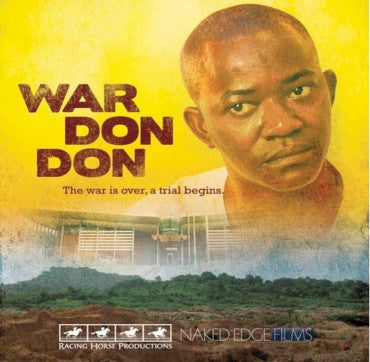
“War Don Don” by Rebecca Richman Cohen ’07. Winner of the Special Jury Award at the South by Southwest Film Festival, this film explores the trial of Issa Sesay, a former rebel leader accused of war crimes in Sierra Leone. The trial highlights the challenge of creating justice in a country torn by civil war. The film, which translates from Krio to “War Is Over,” gives voice to the people in the trial and to Sierra Leonians outside the courtroom. Cohen focuses on the inherently subjective boundaries of right and wrong during conflict. Whether or not you end up feeling sympathetic to Sesay after you see the court issue its verdict, in the end, “War Don Don” opens up a broader discussion about the nature of crimes against humanity and the international justice system. It was broadcast on HBO in September and—as of December—is available on DVD.
* * *
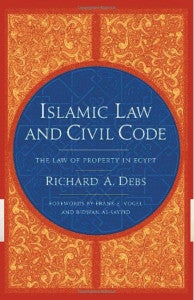
“Islamic Law and Civil Code: The Law of Property in Egypt” by Richard A. Debs ’58 (Columbia University Press). Originally the author’s doctoral dissertation written some 50
years ago, the book examines the development of national law in Egypt. Frank Vogel, founder and former director of the Harvard Law School Islamic Legal Studies Program, writes in a foreword: “Despite the passage of years, no study I am aware of renders Dr. Debs’s work obsolete or even significantly overlaps with it.” An advisory director of Morgan Stanley, Debs focuses on the Civil Code of 1949, which established modern Egyptian property law, and examines how traditional Islamic legal institutions that existed in the 19th century were incorporated into it. The result, he writes, is a nation that is governed by its constitution and legislation but still respects the religious tradition of Shari’ah.
* * *
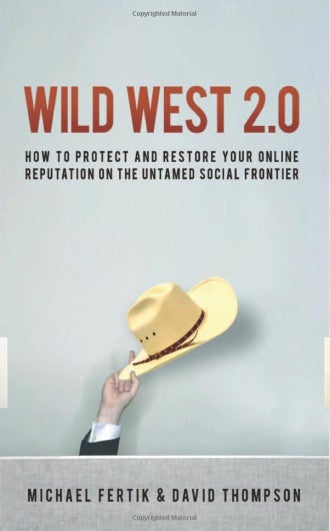
“Wild West 2.0: How to Protect and Restore Your Online Reputation on the Untamed Social Frontier” by Michael Fertik ’05 and David Thompson (American Management Association). Fertik, the founder and CEO of the online reputation management firm ReputationDefender, and his chief privacy officer have written an account of how disasters can happen online, and how to make sure they don’t happen to you. The book offers a step-by-step guide to readers looking to assess their online footprint and endorses a “proactive” approach to warding off online character assaults. Readers are encouraged to shore up their online presence with positive or neutral material, building up what the authors term “Google insurance” to drown out attacks and slanders that might come later.
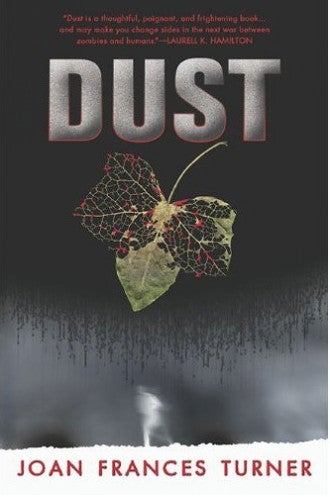
* * *
“Dust” by Joan Frances Turner (Ace Books). This debut novel by a 1995 graduate—her real name is Hilary Hall—is narrated by Jesse, a member of the undead (“zombie,” she says, is a racist term) since a car accident at the age of 15. As we follow Jesse and her decaying band of fellow hunters, the Fly-by-Nights, through Indiana (they fight and banter with each other, rot, and devour bloody meat), we learn a thing or two about what it means to leave life behind.
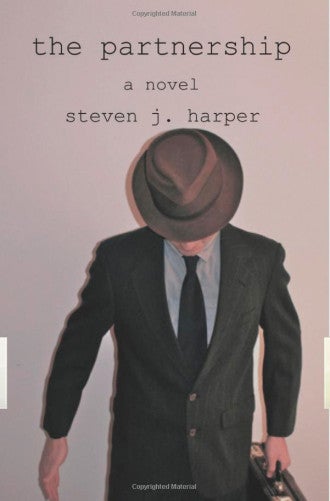
* * *
“The Partnership” by Steven J. Harper ’79. Written by a man who himself spent 30 years as a litigator in a large firm, this novel—Harper’s first—follows two star attorneys at the fictional Michelman & Samson as they stage relentless, soul-draining drives to the top of the career ladder, sacrificing their morals, their personal lives and their friendship along the way.
* * *
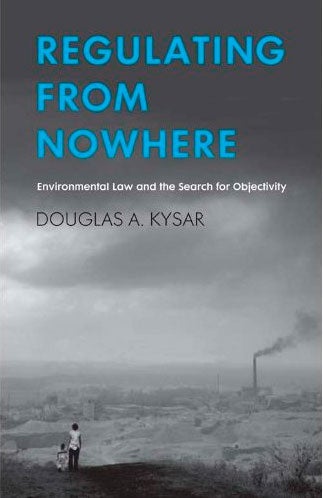
“Regulating from Nowhere: Environmental Law and the Search for Objectivity” by Douglas A. Kysar ’98 (Yale University Press). Yale Professor Kysar draws on philosophy, psychology, economics and science to critique the dominant cost-benefit model for assessing environmental risk and making policy decisions. Kysar’s work rigorously defends the “precautionary principle” in environmental lawmaking, which at once recognizes the limits of our ability to numerically assess the many risks that face us and brings us back in touch with our moral responsibility not just to other human generations but to other forms of life. The book’s final segment takes shape around Kysar’s own model statute, which he calls “The Environmental Possibilities Act,” and which looks at how we might engage with a moral and constitutional vision of economic policymaking.
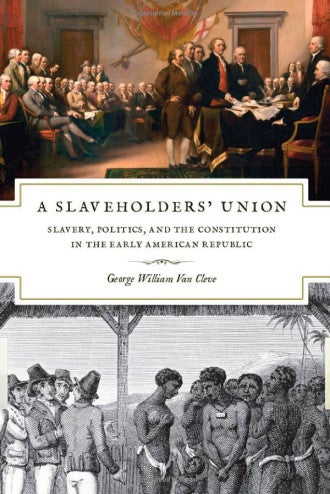
* * *
“A Slaveholders’ Union: Slavery, Politics, and the Constitution in the Early American Republic” by George William Van Cleve ’77 (University of Chicago Press). This analysis of the legal and political history of slavery—from the American Revolution through the Missouri Compromise—asks why it persisted and prospered after a revolution some thought would end it. Now a scholar-in-residence in the Department of History at the University of Virginia, Van Cleve argues that slavery endured because it was essential to the foundation of the republic. He examines the Constitution’s formation in detail, finding that it was “pro-slavery in its politics, its economics and its law.” To create a strong federal republic that could become a continental empire, he contends, the Southern states had to be willing partners in the endeavor, and a major part of the “price of their allegiance” was the “continued protection of slavery as it expanded.”
* * *
“Red Hook Road” by Ayelet Waldman ’91 (Doubleday). This novel set in Down East Maine opens with a wedding followed by the death of the bride and groom on their way to their own reception. In the chapters and years that follow, the couple’s family members—Maine natives on one side and summer people from New York City on the other—find their lives interwoven in ways they might not have predicted.
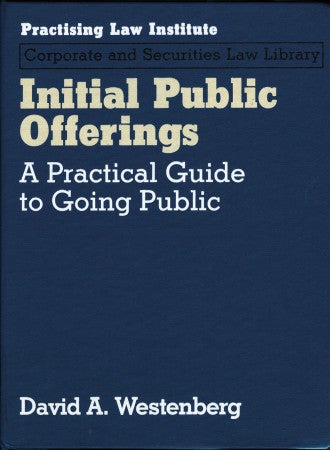
* * *
“Initial Public Offerings: A Practical Guide to Going Public” by David A. Westenberg ’83 (Practising Law Institute). Hailed as the upcoming “bible of the market” on The New York Times’ DealBook blog, Westenberg’s work aims to be a comprehensive, ground-up guidebook for companies and their advisers as they first consider and then enact the complicated process of going public. Readers are shepherded from the most minute preliminary considerations all the way through topics like investor relations and post-IPO liquidity by the WilmerHale partner, who himself has decades of experience leading companies from formation through venture financing and onward to IPOs.
Supreme Pragmatism
“Making Our Democracy Work: A Judge’s View” byStephen Breyer ’64 (Knopf). To ensure public confidence, the Supreme Court should employ a “pragmatic” approach to interpreting the law, with consideration for the real-world consequences of its actions, Justice Stephen Breyer argues. “The key lies in the Court’s ability to apply the Constitution’s enduring values to changing circumstances,” he writes. Breyer notes that the public has not always abided by the Court’s rulings in cases such asCherokee Nation v. Georgia, the Court’s decision to protect Cherokee Indians, and Brown v. Board of Education, which federal troops had to enforce. In contrast, a recent case like Bush v. Gore, though controversial, faced no such resistance. Although the public now accepts the legitimacy of Court decisions even when they are unpopular, according to Breyer, that will continue only through civic education and Court “rulings and interpretations that help the Constitution work in practice.” He outlines principles to consider when deciding whether to overturn an earlier case, including whether it has created a set of unworkable legal rules or it has been embedded in national culture. He concludes by examining the Court’s role in protecting individual liberties. In those cases, as in others, Breyer says that Court decisions that respect the role of other government branches and make the law work more effectively will help foster “a workable democratic government.”